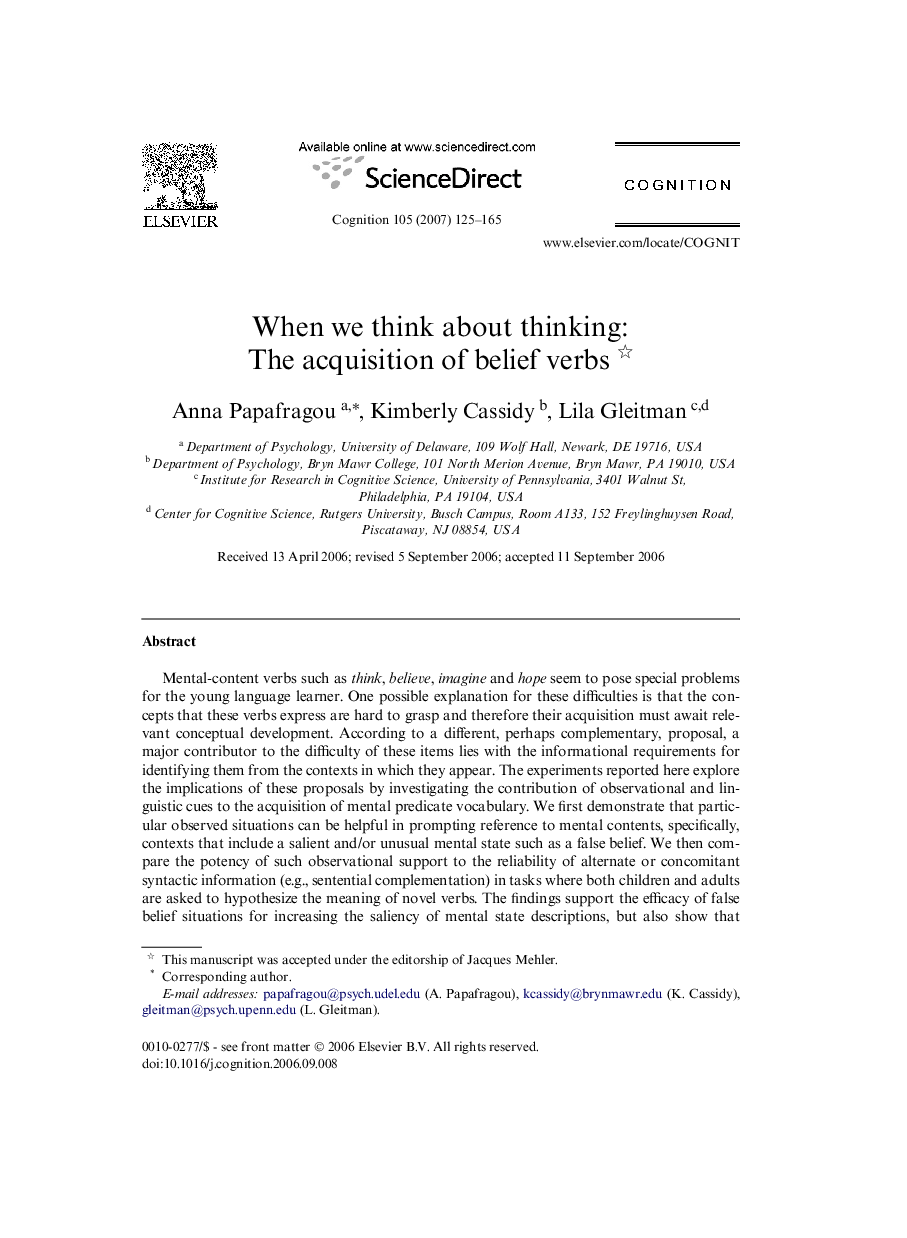| Article ID | Journal | Published Year | Pages | File Type |
|---|---|---|---|---|
| 926841 | Cognition | 2007 | 41 Pages |
Mental-content verbs such as think, believe, imagine and hope seem to pose special problems for the young language learner. One possible explanation for these difficulties is that the concepts that these verbs express are hard to grasp and therefore their acquisition must await relevant conceptual development. According to a different, perhaps complementary, proposal, a major contributor to the difficulty of these items lies with the informational requirements for identifying them from the contexts in which they appear. The experiments reported here explore the implications of these proposals by investigating the contribution of observational and linguistic cues to the acquisition of mental predicate vocabulary. We first demonstrate that particular observed situations can be helpful in prompting reference to mental contents, specifically, contexts that include a salient and/or unusual mental state such as a false belief. We then compare the potency of such observational support to the reliability of alternate or concomitant syntactic information (e.g., sentential complementation) in tasks where both children and adults are asked to hypothesize the meaning of novel verbs. The findings support the efficacy of false belief situations for increasing the saliency of mental state descriptions, but also show that syntactic information is a more reliable indicator of mentalistic interpretations than even the most cooperative contextual cues. Moreover, when syntactic and observational information sources converge, both children and simulated adult learners are vastly more likely to build conjectures involving mental verbs. This is consistent with a multiple-cue constraint satisfaction view of vocabulary acquisition. Taken together, our findings support the position that the informational demands of mapping, rather than age-related cognitive deficiency, can bear much of the explanatory burden for the learning problems posed by abstract words.
